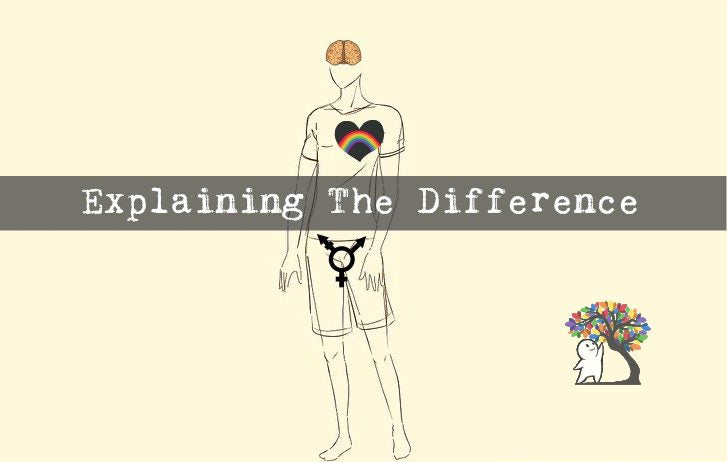
Pornography: What We Don’t Talk About, An Interview With David Ludden by Julia V.
Share
Porn. A topic that’s often considered so forbidden and uncomfortable that a lot of people avoid mentioning it altogether. Some research shows that pornography can have a detrimental effect on romantic relationships, but is that entirely true? It’s hard to distinguish between cause and effect. Many people who consume pornography are in unsatisfying relationships, but the truth is most of those people were unhappy before turning to porn. While some might believe that naughty internet searches are just for kicks, there’s more to it than getting off. The taboo issue is more complicated than it might appear.
David Ludden has a Ph.D. in cognitive psychology and is the author of The Psychology Of Language: An Integrated Approach. He also writes articles about couples and relationship dynamics, and you can read his blog, Talking Apes, here.
You stated that there is no agreed-upon definiton of pornography. What do you consider pornography to be? At what point does it stop just being nudity, or just sex?
In the article I cited in my blog on Psychology Today, the authors suggested defining pornography as any visual representation of nudity or a sexual act. To me, this is just too broad. Many of the great works of Western civilization would then count as pornography. Should we wrap a loin cloth around Michelangelo’s David? Should we pixelate the bare breasts on Botticelli’s Birth of Venus? And let’s go beyond Western culture. Consider for instance Hindu temple sculpture, which often depicts acts of sexual intercourse. Is this religious art or pornography? Even if we go deep into the archeological record, we find Venus figurines dating back 20-30 thousand years. These are small statues of females with huge breasts and buttocks that may have been have been religious fertility icons. Or maybe they were just Paleolithic porn stars. To give yet another example, I once visited a temple in Japan where the sacred relic was a six-foot-long wooden penis that they paraded around the temple courtyard once a year in a fertility festival. Women who wanted to conceive would ride atop the wooden penis. In the end, I’m not even sure “pornography” is a useful concept.
What are some reasons– besides being dissatisfied with the relationship– that a person might turn to pornography? Does it satisfy an emotional need or is porn purely for sexual pleasure?
People use porn for all sorts of reasons. As you mention, some use it to compensate for a lack of partnered sex, either because they’re not currently in a relationship or because of an imbalance of desire between partners. Others use porn to relieve depression, anxiety, boredom, or loneliness. Let’s face it. Sex is extremely pleasurable, and we all have a high sex drive. It’s not surprising that we find sexual images and videos intriguing. You may say: “yes, but having sex and watching other people have sex is completely different.” I’m not so sure. We also have a strong hunger drive. There are lots of TV shows that depict people cooking and eating food—there’s even the Food Network and the Cooking Channel. People love to watch other people eat tasty food, even though they can’t taste the food themselves. Maybe we should call this “porn for foodies”!
Are people who consume porn more likely to be unfaithful to their partner?
Now this is a trick question. Most people will interpret it to mean: “Does consuming porn cause people to be unfaithful to their partner?” The answer to that question is a resounding “NO!” But let’s deconstruct the question. People who are dissatisfied with their relationship sometimes consume porn to compensate for what they’re missing. Likewise, frustrated partners sometimes resort to affairs. But it’s not a slippery slope. It’s not first porn, then infidelity. Rather, they’re both symptoms of the same underlying problem, an unsatisfactory relationship. Think of it this way. Sneezing doesn’t cause a runny nose. Instead, both are symptoms of a cold. The same is true for porn and infidelity.
Do women in relationships consume porn as often as their male partners do?
First, let’s get a working definition of porn. For our discussion, let’s define porn as images and videos produced and distributed for the purpose of sexually arousing their viewers. The research so far conforms to most people’s intuitions. Men are by far the major consumers of porn, and, in fact, most porn is made with male consumers in mind. But there is a gender difference in the reasons for porn use. Very generally speaking— and keep in mind that there are a lot of individual differences— men are more likely to use porn as a replacement for sex, whereas women are more likely to use it enhance their sexual experience with their partner.
You talked about how porn can affect a person in many ways. Do you believe that low self-esteem related to consuming pornograpy is caused by comparison? Unrealistic expectations– seeing something you can’t have? Guilt? Or something else entirely?
Yes to all the above. As I argue in my blog post, porn use is a complex human phenomenon, and any simple explanation is simply wrong. That said, it’s still not clear that porn consumption leads to low self-esteem, as your question implies. One reason people use porn is alleviate symptoms of depression and anxiety. It’s not the porn that’s causing the low self-esteem. These viewers bring their low self-esteem into the porn experience. I suspect people with high self-esteem who view porn see the exaggerated body parts and sexual positions as the caricatures they are. Porn is fantasy, just like any other movie or story, and I’m sure most consumers understand it as such.
Now guilt is a completely different issue. Until quite recently, if you had conservative sexual attitudes, pornography was easy to avoid. As I relate in my blog post, you used to have to go looking for it, and it wasn’t that easy to find. Nowadays, the same tools we use for work and school (our laptop computers) also provide us with easy access to unlimited pornography. For people who are comfortable with their sexuality, porn is a wonderful convenience. But for people who still subscribe to the negative sexual attitudes they were brought up with, porn is a dangerous and irresistible temptation. In my view, the problem isn’t porn. The problem is the negative and unhealthy attitudes our society has about sex.
What about the other side of pornography? How does being a porn star influence a person’s relationship? What about couples who create porn together? Has that ever been researched?
 These are all very good questions, but I haven’t seen any good research on these issues. I suspect as pornography becomes more widely accepted in society, researchers will be more willing to approach these issues. All I can give is a few hunches. People who are attracted to the idea of performing in porn movies probably have more open and fluid attitudes toward sexuality and relationships than the average population. As for amateur couples who create and post porn, I’d have to say that in the current social climate, this is a very dangerous thing to do. There are all sorts of negative legal ramifications, such as who owns the video, and whether it can be taken down if one of the partners no longer wants it public. Then again, once posted on the internet, forever on the internet. But I can certainly understand the excitement of recording and watching yourself have sex with your partner. The sexually adventurous have been hanging mirrors on the ceilings of their bedrooms for centuries.
These are all very good questions, but I haven’t seen any good research on these issues. I suspect as pornography becomes more widely accepted in society, researchers will be more willing to approach these issues. All I can give is a few hunches. People who are attracted to the idea of performing in porn movies probably have more open and fluid attitudes toward sexuality and relationships than the average population. As for amateur couples who create and post porn, I’d have to say that in the current social climate, this is a very dangerous thing to do. There are all sorts of negative legal ramifications, such as who owns the video, and whether it can be taken down if one of the partners no longer wants it public. Then again, once posted on the internet, forever on the internet. But I can certainly understand the excitement of recording and watching yourself have sex with your partner. The sexually adventurous have been hanging mirrors on the ceilings of their bedrooms for centuries.
References:
Ludden, D. (May 29, 2017). Is Porn Use Really harmful To Relationships? Retrieved from http://www.psychologytoday.com/blog/talking-apes/201705/is-porn-use-really-harmful-to-relationships
